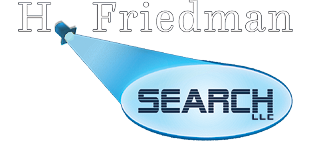Your interview is completed, and you asked your closing two or three questions. What’s next?
The first thing you do when you leave the interview is relocate to a place where you can sit and think about the interview. While thinking about the interview, start to write down notes of anything that stood out to you during the interview. The purpose of this is two-fold. Firstly, to gather your thoughts in preparation of writing your follow-up thank you notes. Secondly, you must begin to evaluate how you did in the interview itself. Since it’s rare that you are going to land the first position you interviewed for, you want to be aware of where you were pleased with your performance. You also must be aware of what areas you were not as sharp or prepared for as you would’ve liked.
Let’s address each of the two areas at length now. I want to reiterate the importance of the follow-up email that should be sent to each person that was influential during your interview process. What exactly does that mean? It means anyone you met with and anyone that assisted you in getting the interview scheduled. For example, if a hiring manager suggested for your next step to meet with the municipal Head Underwriter as well as the Head of Sales, he is an influential person under this formula. A thank you is definitely warranted to be sent to him or her. Within the thank you note, you not only want to say thank you for arranging the call or meeting; but you want to re-cap how the meeting went with the interviewer. You want to highlight your takeaways for that person. Incidentally, the takeaways should be personalized and specific. This means that the underwriter’s note should relate to your experience with an underwriter, and the Head of Sales thank you should do the same with respect to a sales position. Remember that they would not have had you talk to these people if they were not important to the decision-making process.
The notes to the people that conducted your interview should reflect what you learned from them. What were your key points that were addressed by the employers? How do you match up with what they said they were seeking? Were there any “Aha Moments” on either person’s part? If there were, you definitely want to bring those up in the thank you notes. Feel free to elaborate on those points. Remember this is going to be their lasting impression of you. If they are on the fence, the more that you can demonstrate why you are a good candidate and your desire to be part of their firm; the greater likelihood that you can persuade them to take a deeper look at you. Put your best two feet forward in these notes. Lastly on the thank you, a question I am asked repeatedly is: Can they be sent via email? I can now say without any hesitation email is acceptable. But if you really want to stand out, nothing beats a handwritten mailed note. However, if time is of the essence you can certainly use email.
The second point of evaluating your performance should not go overlooked by any serious candidate. Determining where you did well, so that you can repeat it with another company or different interviewer at the same company is paramount to your success. Equally important to that is identifying which areas you could have been a stronger interviewee. What questions did you not handle as well as you would have liked? Were there any questions that you did not expect? If so, write those down immediately. Go a step further and write your answers to them in order to be better prepared when you look at your notes before your next interview.
Lastly, (this is something most candidates do not do) determine what you would expect as a next step if you were the one doing the interview. I am amazed at how many candidates think they “nailed the interview,” and I have to share with them that they are not getting to the next step in the process. Why do I stress this? It is for you to learn and self-analyze how well you really did – not how well you think you did. By becoming comfortable putting yourself in the shoes of the interviewer, it will make you a better candidate for your next interview.
Please reach out to me if you want to have a confidential discussion about your career. Whether you are a Public Finance Banker or a Bond Counsel Attorney, my perspective as a 30+ years veteran of our cottage industry will be enlightening for you. Contact me at [email protected] or for an immediate response call 760-477-1284.
About Harlan Friedman, JD & Founding Member, H. Friedman Search LLC. Harlan is a thirty-year veteran Public Finance Banker turned recruiter who specializes in the placement of all level Public Finance Bankers, Health Care Bankers, Municipal Financial Advisors, Compliance Officers, and Bond Counsels. He can be reached on LinkedIn, at [email protected] or 760-477-1284.

